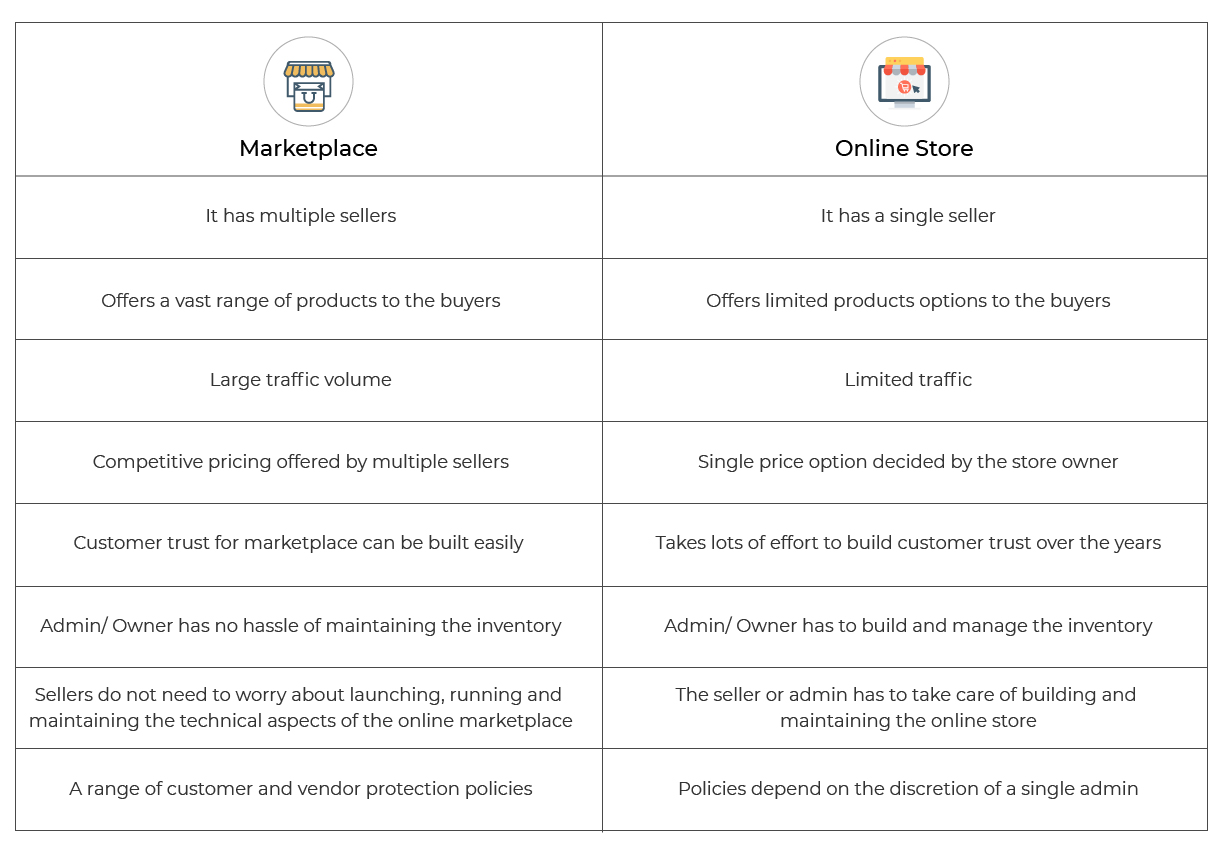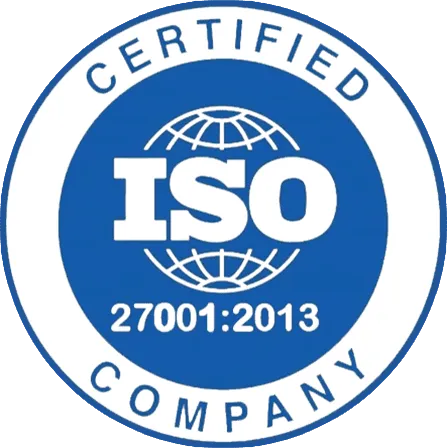Why Build A Marketplace Website
Amazon’s total net sales reached $ 70 billion during the third quarter of 2019, a 10% increase from the preceding quarter. (Source: Statista ). The growth figure is even more amazing if you check the figures for Q3 2017, which is $43.74 billion. A whopping 60% growth in just two years!
Such amazing growth proves one thing for sure, this is the day and age of marketplace websites! Well, it is not only Amazon but other popular multi-vendor stores like Alibaba, Etsy, eBay have also proven beyond doubt that the multi-seller ecommerce model is a promising and profitable business idea.
How Is An Online Marketplace Different From A Online Store
Just like we see in the real world, a store usually has one seller/shopkeeper whereas a marketplace is a hub which has multiple stores owned by different sellers or shopkeepers. So the main differentiating factor between a marketplace website and a regular online store is the number of sellers selling on that site.
The marketplace has a number of sellers coming together on a single website, selling under one brand name. For example, when you buy a dress, a smartphone, home appliances from Amazon, you do not say the vendor’s name from whom you purchased these items. You tend to say you bought the products from Amazon.
The revenue model of the marketplace website is decided by the owner or admin who works as the manager of the store. He gets commissions from the various sellers listed on his platform. He can charge a fixed or variable percentage of commission on each sale made by the vendors. He then pays out the remaining amount to the vendors. Irrespective of who the seller is, the customers buy various products from the multi-seller ecommerce store.
Here is a simple table that explains the difference between these two online business models.
Multi-Vendor Marketplace Vs Online Store

The multiple advantages of the multi-vendor ecommerce store make it a lucrative business option for entrepreneurs.
How To Create A Marketplace Website
Given the complex flows and additional requirements of a multi-vendor shop system, it requires an advanced digital solution as compared to one needed to build a regular online store. Since there are many sellers and a vast range of products to handle the system becomes inherently bigger than a simple ecommerce website.
Also, there are different vendors, their registration, products, commissions, payouts etc to manage along with taxes, shipping, discounts etc. This necessitates using a comprehensive multi-seller ecommerce software that can take care of all this along with hosting. Along with this the marketplace website software should be fast-loading, customizable, offer a comprehensive admin dashboard that has detailed statistics and analytics features to give an insight into the business. And on top of it all, it should be easy to use and tweak, to suit the unique requirements of diverse models of a marketplace website.
Seems too much to handle, right. Definitely this needs a tested and flexible multi-vendor software. Another point to consider is the commissions you get from the vendors and the payouts to them. Also, note different products have different tax rates levied on them.
Also, depending on the geographical location of the vendor there might be different types of GST( for a multi-vendor marketplace in India). If you are dealing with international vendors then you will have to take care of import duties as well on your marketplace website. All this can be really overwhelming if your online marketplace software is not equipped to handle such use cases.
Apart from these, other features that enhance user experience are also essential. To offer a seamless buying experience to your users you should have a mobile-ready marketplace software. Since 80% of online traffic comes from the mobile channel this is an essential feature for your success.
Also, you should offer them multiple payment options to boost conversions. If you are selling to international customers, having a multilingual marketplace website with multi-currency payment option will be an added advantage. Even if you are currently not planning to go global, selling cross-border is not a far fetched dream in the changing ecommerce environment. So, you should be looking for a multi-vendor ecommerce platform that offers you all the above along with tools to try out different marketing and discount strategies for your marketplace business.
How To Choose The Marketplace Website Software For Your Business?
While there are multiple scripts and ecommerce platforms offering an off-the-shelf solution for multi-seller marketplace, it is essential to check whether they suit your short-term as well as long term requirements. You need to draw a five-year business plan and think through the requirements and accordingly find a marketplace website software that best fits your requirements.
StoreHippo multi-vendor ecommerce platform has taken care of all the above-mentioned features needed for a multi-seller online store. We have also built many successful horizontal marketplaces, vertical marketplaces and service aggregator marketplace for our clients working on the B2B as well as B2C ecommerce models. We have also built many out-of-the-box models of a marketplace website for our clients.
We recommend you to check our Multi-Vendor Use Cases and explore our platform by starting your 14-day free trial now.





















